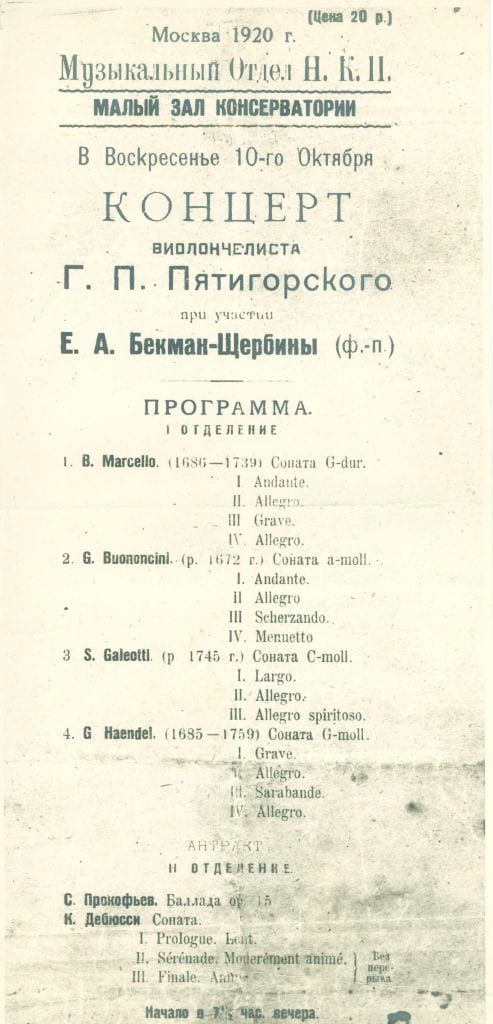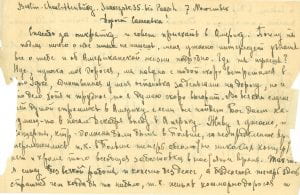By Carol Merrill-Mirsky
Piatigorsky spent the first eighteen years of his life in Ukraine, where he was born, and Russia, where he studied at the Moscow Conservatory. An itinerant cellist from the age of eight, self-supporting from the age of twelve, he joined the orchestra at the Bolshoi Theater as principal cellist before his fifteenth birthday. He lived through the Russian Revolution and at eighteen escaped from Russia with nothing but his cello.
At the Piatigorsky Archives at the Colburn School, we have a collection of Russian language materials –concert programs, books, scores, and over 350 letters to Piatigorsky in Russian from family and friends – but only one letter written in Russian by Piatigorsky himself, an artifact that provides insight into the cellist’s mindset in the early years following his departure from Russia.
Written from Berlin to his friend Alexander Cores in 1923, Piatigorsky was at a low point in his career, financially and professionally. He complains about the political life in Poland and Germany and wants nothing more than to go to America.

I live terribly, the concerts that were supposed to happen in Poland were postponed indefinitely, as now there are absolutely no concerts in Poland whatsoever, and besides, there is a countrywide strike going on right now. So I am completely out of work, and thus, of course, out of money; and the lack of money now over here is worse than ever, as life is horribly expensive and in general there is a horror of panic, riots, hunger, pogroms, placards and such things in Berlin.
His first U.S. tour didn’t happen until 1929, but his prospects in Germany improved in 1924, when he auditioned for Furtwängler and became principal cellist of the Berlin Philharmonic – at the age of 21.
After leaving Russia in 1921, Piatigorsky never went back until he was invited to be a judge at the 1962 Tchaikovsky Competition in Moscow during the height of the Cold War. Piatigorsky reunited with his father after 41 years.
Piatigorsky’s sole Russian letter was among his personal collection at his home in Brentwood, among the things that he saved his entire life. Musicologist Irina Osetinskaya, formerly of the Mariinski Theater in St. Petersburg and now living in Los Angeles, examined all the Russian language materials in the archives, created a descriptive inventory, and made translations of selected items.
Letter To Alexander Cores Translation
Examples from the Archives will be displayed in Newman Recital Hall at USC during the Piatigorsky Festival. Scholars are invited to contact us via email at piatigorskyarchives@colburnschool.edu for further information.

